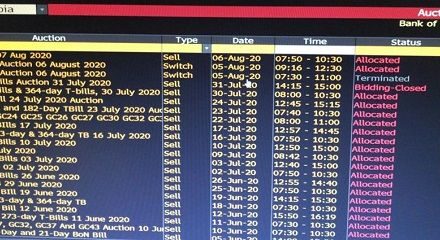
Phosphate is the commodity that will save the world
A report I received early in June from the UN’s Food and Agriculture Organization, the FAO, offered much detail on future sustenance and consumption by the global population. I remember being very impressed by the detailed breakdowns on population growth by country, region and continent. These were accompanied by equally impressive projections for food production, also listing those regions where climate will play a considerable role either to inhibit or promote crop cultivation. Southern Africa is one of those regions.
One of the benchmarks used was to calculate the tonnes of food we will need to feed the global population once it reaches 9 billion individuals. These volumes are staggering. Later in the report some food shortfalls and shortages received attention, and some remedies were suggested. One of these is that our agriculture has to change dramatically, in other words, all the countries in the world will have to shift their production to intensive crop cultivation under irrigation. For this, there are two requirements, water and fertiliser.
Reading further, I realised the world will need fertiliser by the billions of tonnes if it were to provide every person with adequate daily sustenance. The volumes are staggering. But it was only once I got to the tables showing how many millions of tonnes of phosphate we will require to produce so many billions of tonnes of fertiliser so that we can grow so much food, that a penny dropped.
The world’s producers of food need phosphate. No phosphate no fertiliser. No fertiliser no dreams of intensive cultivation. This will lead to upheavals and riots ala Venezuela style, but not only in some forsaken third world countries, this will happen around the world if we collectively fail to grow enough of what we eat.
It was then that I realised phosphate mining is coming to Namibia whether we like it or not.
The issue of phosphate mining has become very contentious with both sides in the local war of words quoting various authorities to argue their case. In my mind, these are all side issues.
We may be of the opinion that the investments driving phosphate mining around the world, are dirty especially when it comes to marine phosphate. We may also believe phosphate mining will harm the seabed, upset the marine ecology, and put 13,000 people out of work in Walvis Bay, but we will not get around the fundamental existential issue that a 9 billion population will have to be fed.
This makes it crystal clear to me that those groups against marine phosphate mining, will not endure over the long run. This may be ten, twenty or fifty years. I think at this stage it is almost impossible to predict accurately how many millions of tonnes of phosphate we will need, but the FAO report is as accurate and realistic as one can get when dealing with the future.
I think the timespan and the precise volumes are not that important simply because the required volumes are so mind-boggling. There is also no way that the total phosphate demand can be produced from other organic on-land sources, so eventually phosphate will become prohibitively expensive if we do not start tapping marine resources.
It does not seem that there are many alternative options. To feed the world’s growing population, plants must be cultivated. This requires fertiliser and the main component still remains phosphate. Plants have been created that way and I do not think any form of genetic modification will change that.
We can continue to block marine phosphate mining or we can put on our realistic spectacles and realise that we will mine phosphate from the sea. There is no way to stop a hungry crowd, just watch the video material originating from Venezuela. In the meantime, as phosphate becomes more and more expensive, the pressure will only grow to tap into new phosphate resources. Marine phosphate is the most obvious candidate.
Eventually the power of investment will override our environmental sensibilities, and we shall have a marine phosphate industry, unless some clever scientist finds a substitute for fertiliser.
There are several sources for phosphate, that is not in dispute. What is a reality is that these sources will be depleted. The phosphate in the world’s seabeds is not an easy solution, it is the only solution.










































